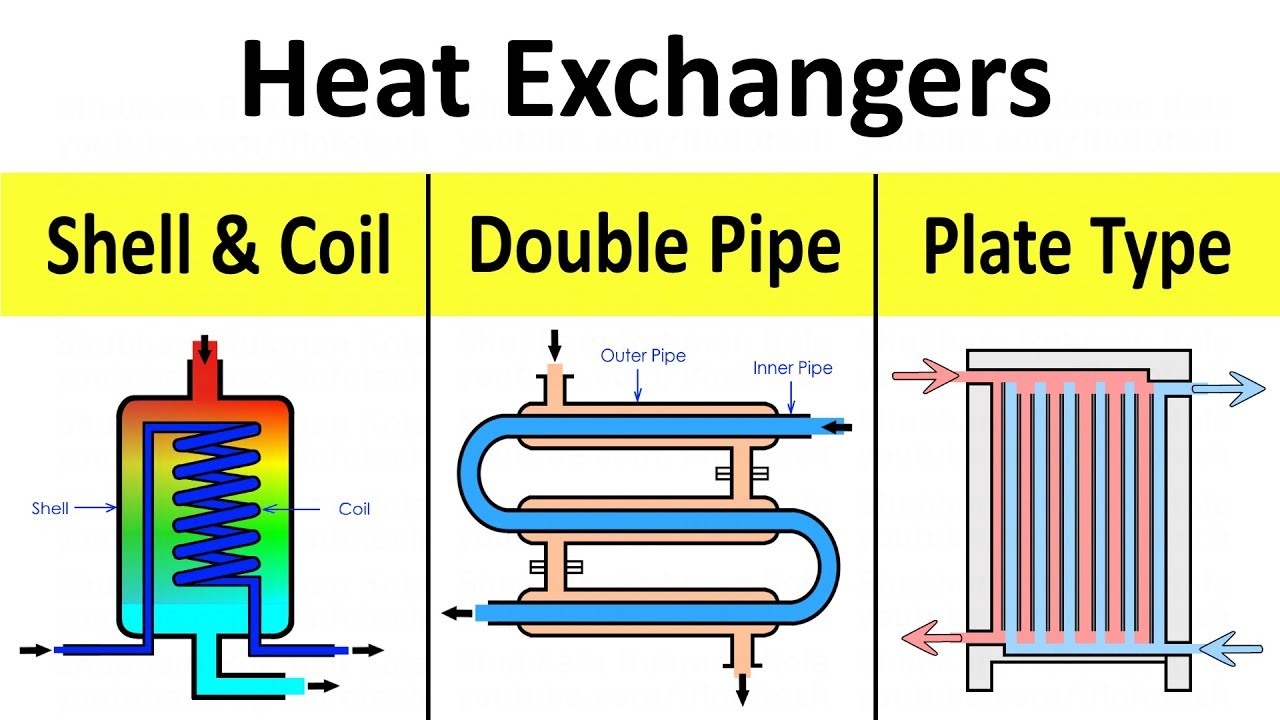
Factors Affecting Heat Exchanger Efficiency
I trust this message finds you well. In this edition of our LinkedIn newsletter, we embark on an enlightening journey to investigate the factors that play a pivotal role in determining the efficiency of heat exchangers. These remarkable pieces of engineering have a profound impact on a wide range of industries, and understanding their performance is essential for optimizing processes.
Heat Exchanger - How to Construct The Plate Heat Exchanger
1. Introduction to Heat Exchangers:
Before we dive into the factors affecting heat exchanger efficiency, let's start with a quick primer on what heat exchangers are and why they matter. Heat exchangers are devices designed to transfer heat between two or more fluids, often with different temperatures. They are widely used in heating, cooling, and industrial processes.
2. Heat Transfer Basics:
Explore the fundamental principles of heat transfer, including conduction, convection, and radiation. Understanding these principles is crucial for grasping the intricacies of heat exchanger operation.
3. Factors Affecting Efficiency:
We'll delve into the key factors that can significantly impact the efficiency of heat exchangers, including:
Surface Area: Learn how the size and design of heat exchanger surfaces affect their heat transfer capabilities.
Fluid Properties: Discover how the physical properties of fluids, such as thermal conductivity and specific heat, influence heat exchanger performance.
Flow Rate and Velocity: Explore the importance of fluid flow rates and velocities in maximizing heat transfer efficiency.
Temperature Differences: Understand how the temperature differential between the hot and cold fluids can impact the effectiveness of a heat exchanger.
4. Types of Heat Exchangers:
Explore various types of heat exchangers, including shell-and-tube, plate, and finned-tube heat exchangers, and learn how their design and configuration can affect efficiency.
HEAT EXCHANGER DESIGN HANDBOOK
5. Materials and Corrosion Resistance:
We'll touch on the importance of selecting the right materials for heat exchangers to ensure longevity and maintain efficiency over time, especially in corrosive environments.
6. Cleaning and Maintenance:
Proper maintenance is essential for sustained efficiency. We'll discuss best practices for cleaning, inspection, and maintenance of heat exchangers.
7. Energy Efficiency and Sustainability:
Discover how improving heat exchanger efficiency can have a positive impact on energy consumption and environmental sustainability.
PROCESS DESIGN OF HEAT EXCHANGER PDF
8. Expert Insights and Case Studies:
Hear from industry experts and explore real-world case studies highlighting successful strategies for enhancing heat exchanger efficiency.
9. Career Opportunities:
For those interested in pursuing a career in thermal engineering, we'll discuss the exciting job prospects and skills required in the field.
SHELL & TUBE HEAT EXCHANGERS PDF
10. Join the Discussion:
We invite you to share your experiences, insights, and questions related to heat exchanger efficiency. Connect with fellow professionals who are passionate about optimizing processes and energy efficiency.
Thank you for being a part of our LinkedIn network, and we look forward to engaging with you in this enlightening exploration of factors affecting heat exchanger efficiency.
Tags, Nameplates , ID Products
6moVery useful
Sales Associate at American Airlines
6moThanks for sharing